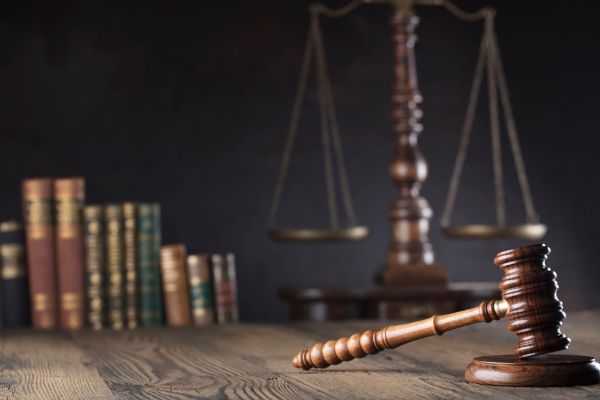White-collar crimes are different from the traditional crimes. It is those crimes that are linked with people of high stature and it includes the principle element of breach of trust by carrying out unethical business practices cultivated by motivation to gain financially. White-collar crime refers to crimes that are non-violent but financially motivated mainly committed by individuals, organizations, professionals or officials in positions of power and trust. These crimes are characterized by deceit, fraud or breach of trust and are committed for financial gain.
What is white-collar crime?
The term ‘white-collar crime’ was first coined by Criminologist and Sociologist Edwin H. Sutherland. He defined white-collar crime as “crime committed by a person of respectability and high social status in the course of his occupation.” It is a financially motivated, no violent or not directly violent crime committed by individuals, businesses and government professionals. It is known as Socio-economic crime because it negatively impacts adversely directly on society.
Definitions of white-collar crime
- Marshall Clinard defined white-collar crime as “a violation of the law committed by groups such as businessmen, professional men, and politicians in connection with their occupations.”
- Sir Walter Reckless Stated “White collar crime represents the offences of businessmen who are in a position to determine the policies and activities of the business.”
- Frank Hartung defines white-collar crime as a “violation of law regarding business which is committed for a firm by a firm or its agents in the conduct of its business.”
Reason for the growth of white-collar crimes
The main causes of increasing white-collar crimes are given below:
- Greed: – Father of modern political philosophy Machiavelli rightly quoted that ‘human beings are greedy by nature.’ According to Machiavelli, a man can easily forget the death of his father than the loss of his inheritance. Human wants are unlimited, the desire for wealth, status and power can lead individuals to engage in white-collar crimes.
- Competition: – Darwin in his theory stated that ‘survival of the fittest’ is necessary. It implies that in a battle to succeed, there will always be competition between the people, and only the best who are able to adapt to the conditions shall survive. To win people don’t mind committing crimes like forgery, bribery and fraud, which is another cause for increasing white-collar crime.
- No fixed law or punishment: – After the commission of the crime most of the offenders get away without getting any punishment because there is no fixed law to deal with such kinds of crimes. In many cases because of the political connections, most of the offenders get away without any punishment.
- Rationalization: – Individuals may justify their actions by rationalizing that they are just doing what everyone else is doing, later convincing themselves that the actions performed by them are not criminal in nature. They may rationalize their actions by believing that they are acting in the best interests of their company, even if their actions are illicit.
- Corporate Culture: – Companies that prioritize profits over ethics may create an environment in which white-collar crime can thrive. Companies that set unrealistic performance expectations may create a circumstance in which individuals feel pressure to engage in illicit activities to meet their sales targets.
Types of white-collar crime
- Bribery: Bribery is the most common type of white-collar crime. It involves offering money, goods, services or information with the intent to influence the actions, opinions or decisions of the taker. Bribery is when a person gives money to the other person who has authority. It is done to agree or disagree something from being done.
- Blackmail: A demand for money or other considerations under threat to do bodily harm, injure property, or expose secrets. It is done to force someone to do something that the person doesn’t want to do with the help of a threat.
- Embezzlement: It occurs when a person or a company, that has been entrusted with money or property, seizes it for their own use or for personal gain. It is one kind of breach of trust.
- Money Laundering: It involves the illegal obtained of money from drug transactions or other embezzlement schemes so that it appears that its original source either cannot be traced or is legitimate. In this type of crime, criminals attempt to cover up the original source of the money which is usually obtained illegally. Section 3 of the Money Laundering Act, 2002 states about money laundering.
- Tax Evasion: It is type of tax fraud. It involves illegal activities that result in the avoidance of paying taxes. This includes underreporting income, inflating expenses or hiding assets. Large corporations or wealthy individuals may engage in complex tax schemes to avoid their financial obligation to the state.
- Insider Trading: It involves the illegal buying or selling of stocks based on confidential, non-public information about a company. Executive, employees or others who have access to this information may use it for personal profit, violating securities laws. characterized as a malpractice in which a company’s individuals, who because of their jobs, have exposure to the otherwise non-public information that can be crucial to making investment decisions.
- Bank Fraud: Bank frauds are financial scams which are made through false representations by fraudulent companies. It refers to the use of fraudulent means to obtain money, assets or other benefits from a bank or other financial institutions. For example; providing false information to obtain a loan, stealing card information and PINs from ATMs, using fraudulent means to transfer funds from one account to another etc.
- Ponzi Scheme: A Ponzi scheme is a type of fraudulent investment scam that promises high return rates for investors with little risk. It is a type of investment scam in which returns than from funds contributed by new investors, rather than from profit earned. Ponzi Schemes often promise unusually high returns or dividends and may use fake documents, fake investment opportunities, or other tactics to convince investors to part with their money.
- Computer Fraud: Where computer hackers steal information present on computers such as: bank information, credit cards, and other personal information.
- Investment Schemes: Where an unsuspecting victim is contacted by a member of a fraud company who promises to provide a large return on a small investment.
White collar crime in various profession
- Medical Profession: Providing false medical certificates, illegal abortion, selling of banned drugs and medicine to patients or chemists, people in the medical profession make misleading claims through advertisements in newspapers and television.
- Education: Providing fake certificates, government teaching staff involved in corrupt activities, teacher hardly teaches their student in school and often blackmail them to take private tuition.
- Engineering: Sub-standard materials are being used for construction which result in endangers the life of many people and huge losses to the government.
- Legal Profession: Fabricating false evidence, engaging false evidence, violating the ethical standards of the legal profession and dilatory tactics in collusion with the ministerial staff of the courts.
- Business: Illegal contracts, copyrights, unfair trade practices, bribery etc.
Cases related to white collar crime in India
- State of Gujrat vs. Mohanlal Jetamalji Porwal and Anr.: – The Supreme Court in this case differentiated the general crimes and white-collar crimes. Justice Thakker stated that murder can be committed in the heat of the moment but these economic offences are committed with a cool calculation and planned strategy to gain personal profits. So, these economic offences came under white-collar crimes.
- Mundhra Scam (First Scam of Independence India, 1858): – Haridas Mundhra, an Industrialist and stock speculator sold fictitious shares to Life Insurance Corporation (LIC) and thereby defrauded LIC by 125 crores. India’s first Prime Minister Jawaharlal Nehru set up a commission headed by Justice M.C. Chagla to investigate the matter. Justice Chagla concluded the matter and Haridas was found guilty and was sentenced to 22 years imprisonment.
- Harshad Mehta Scam Case, 1992: – The Harshad Mehta Scam shocked the entire economy of India. He fooled many investors by taking advantage of the loopholes of the system. He obtained fake Bank receipts from small Banks and further passed them on to other banks as security to obtain cash. This money was used to drive up the prices of stocks in the stock market. The bubble of stock market manipulation and fake bank receipts busted having a drastic impact on the stock market, economy and progress of the country. The banking system was swindled at a whopping Rs. 5000 crores. Even, the chairman of one of the banks committed suicide. This scam can be called as one of the biggest white-collar crimes as the case was mainly regarding the manipulation of accounts and provision of misleading information.
- Satyam Scam, 2009: – Satyam was the biggest scam in the history of India. The Satyam scam of 2009 has shattered the peace and tranquillity of investors in the share market. Chairman Ramalinga Raju has manipulated the financial statement and the books of accounts. Satyam’s books of account show, stated Assets of Rs. 490 crores, a Fake cash balance of over Rs. 5000 crores in the balance sheet, an Interest component of Rs. 376 crore which never flowed into the company’s coffers, Understated Liabilities of Rs. 1,230 crores. He has also inflated with revenues and net profit figures of the company, with which he was charged with heavy penalties. Investors got panicked as Stock Plummeted reacted sharply and dumped shares, pushing down the scrip by 78 per cent to Rs. 39.98 on the Bombay Stock Exchange (BSE). The chairman, Managing Director, Chief Executive Officer and Chief Finance Officer and the Key Managerial personnel were arrested. Partners of the audit firm were also arrested.
- Punjab National Bank Fraud, 2011: – Nirav Modi is a diamantaire, an elite jewellery designer and India’s 85th richest person. Bank said that Modi and the companies linked to him colluded with its officials to get guarantees or Letters of Undertaking to help fund buyers’ credit from other overseas banks. PNB’s preliminary investigation showed that two officials of the bank had fraudulently issued Lou’s to the said firms without following the due procedure. These LOU were then transmitted across the SWIFT messaging system, based on which the credit was offered to the said firms. PNB alleged that the funds ostensibly so raised for the purchase and sale of diamonds were not used for the purpose. PNB issued to the stock exchange, about the detection of fraudulent and unauthorized transactions. PNB has incurred $1.8 billion in fraud, one of the largest to be detected in the Indian Banking Sector.
Measures to crab white collar crimes
- Enact and enforce strict laws and regulations to prevent and punish offenders who commit white-collar crimes.
- Impose severe penalties including fines and imprisonment for white-collar crimes.
- Provide proper training to the investigating officer to track the suspect and find out the truth without causing harm to the environment or its members.
- Creating awareness among internet users about cyber crimes and initiatives to be taken to protect the users from cybercriminals.
- Implement anti-money laundering systems to detect and prevent money laundering.
- Creating public awareness through the media and press and other audio visual aids.
- Establish specialized units to investigate white-collar crimes.
Conclusion
White-collar crimes are a big global concern and are increasing at an alarming rate. Various studies have proved that the financial loss to society from white-collar crime is much more than other crimes. India is a developing country and white-collar crimes are not only a detriment to the economic growth of the country but also spoil the image of our country. Strict laws and special tribunals should be made and implemented so that the offender should be afraid of the punishment and before committing any crime he should think twice. Moreover, government agencies should make a combine effort to eliminate such crimes from our country.
Author: Sushree Sriya Bihari, a Student (4th Year B.A.LL.B. (Hons) at Madhusudan Law University.







